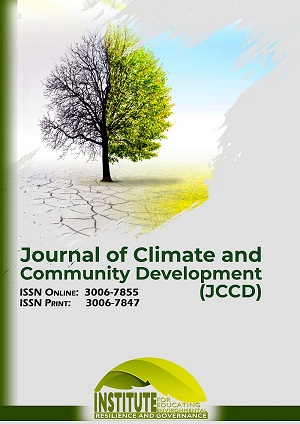Environmental security in South Asia: The role of climate change in the Pakistan-India transboundary water management
Keywords:
Environmental Security, Transboundary Water Management, Indus Waters Treaty, Climate Change Impact, Glacier Retreat in Upper Indus Basin, Water Scarcity and Agriculture, Pakistan-India Water ConflictsAbstract
This paper discusses environmental security in the context of South Asia and multidimensional analysis of changes in the watersheds of Pakistan and India due to climate change. The water resources in the Indus basin are vulnerable to the effects of global warming, climatic changes, and glacier and snowmelt. Overall, the Upper Indus Basin (UIB) has lost 23% of its glaciers since 1980 and any additional glacial shrinkage totaling 40% by 2050 could significantly jeopardize water sources necessary for agriculture, drinking, and hydroelectric developments. This is especially the case for Pakistan, with about 75 percent of the rural population involved in the agricultural sector, thereby increasing the country’s exposure to water stress, poverty, and migration. To grasp these impacts, the research uses climate data reviews, countries’ treaties, and statistic quantization of glaciers’ melting. Built upon the Theory of Environmentalism in International Relations, the paper investigates the challenges of power, sovereignty, and economic concerns that surround the management of transboundary waters. Implications highlight the significance of adaptive capacity and resource equity for lowering water-related conflict potential. Therefore, close coordination with other countries and the establishment of sustainable water-sharing agreements are deemed to be essential for addressing future climatic changes in this volatile region.
Downloads
Downloads
Published
Issue
Section
License

This work is licensed under a Creative Commons Attribution-NonCommercial-NoDerivatives 4.0 International License.







